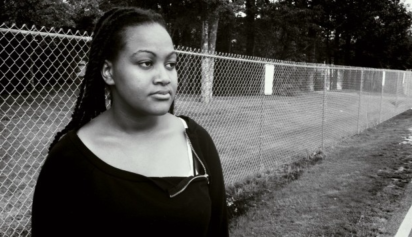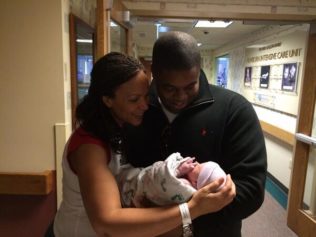When our former babysitter had her baby last week, I was among the first ones to show up to greet her son. My 4-year-old daughter came along. She handed over the presents, disputed whether she was ready to part with the board book I’d tossed in, and chattered during the entire visit. She is old enough now, though, to let me sit with a featherweight bundle of day-old baby without complaint.
The same midwife who attended my babysitter caught my first boy, too. I felt a sentimental tug for the childbirth center floor of the local hospital, where my three boys were born. This wasn’t the hospital where my daughter was born, though, nor was I the one who gave birth to her.
My daughter studied this tiny newborn, and I recalled, “You were even tinier than he is.”
She offered, “Like right when I came out of your tummy.”
Although she has been told the whole story many times now and knows her birth mother, she has slipped like this before, describing herself as having been in my tummy. The friend-slash-former-babysitter knew her story, too, and raised her eyebrows. My friend’s parents, standing beside us, did not.
I decided to let it go.
Many times over, my little girl has heard about how she wasn’t in my tummy, but in Auntie Cece’s tummy. She knows Auntie Cece, and her biological grandparents and aunts and uncles and cousins. But emotionally, it doesn’t always compute. She sees them, this other family, infrequently, and their roles don’t quite add up for her all the time.
Still, when she asserts her truth — “I was in your tummy” — I can’t help but lose my breath and my bearings.
“Less is more,” the elementary school psychologist always coaches when parents negotiate difficult passages with their young children. I hear her words at this moment. At other, similar moments, when my daughter has forgotten which tummy she was in, I have responded differently. I’ve given her a prompt like, “You were in Auntie Cece’s tummy, remember? I was in the room and you came into my arms and Papa’s arms. We’d been waiting for you. We all went home to our house from the hospital.” When I offer this explanation, she looks a little confused and a little sad, and we hug…
Read More: Sarah Buttenwieser, parenting.blogs.nytimes.com

